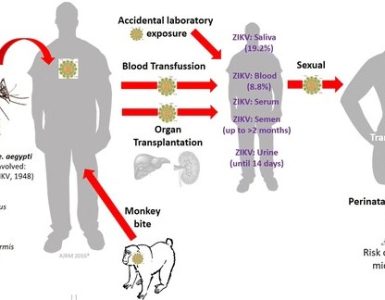 While infectious diseases like AIDS, malaria and tuberculosis should remain high on their hit lists, global health leaders are now having to focus more on altering lifestyles than containing outbreaks, the assistant U.S. health secretary said in Atlanta May 14.
While infectious diseases like AIDS, malaria and tuberculosis should remain high on their hit lists, global health leaders are now having to focus more on altering lifestyles than containing outbreaks, the assistant U.S. health secretary said in Atlanta May 14.
In 2010, more than two-thirds of the nearly 53 million deaths worldwide were caused by non-communicable diseases, those brought on by lifestyle or genetics rather than transmitted from one person to another.
“Health for much of the planet’s population is rapidly looking like some of the health issues that we see here in the United States,” said Howard Koh, the No. 2 official in the U.S. Department of Health and Human Services.
While food aid and vaccination campaigns have drastically cut down on malnutrition and child mortality, most countries now are suffering from too much food instead of too little, Dr. Koh said.
In other words, “people are not starved, but stuffed,” he said during a lecture on “Global Health in the 21st Century” at Georgia State University’s Institute of Public Health.
According to the most recent Global Burden of Disease report from scholars in 50 countries, heart disease and diabetes – both heavily linked to diet – are serious killers, but tobacco-related cancers topped the list of preventable causes of death, Dr. Koh said.
“The tobacco issue has got to be mentioned in every global health conversation,” said Dr. Koh, a Korean-American who spent more than 30 years as a clinician in a variety of specialties, including oncology.
Policy makers must “denormalize” smoking, which crept into the mainstream thanks to billions of marketing dollars spent by tobacco companies with “devastating, devastating consequences” for global health, he added.
In a place like China, where more than 60 percent of adult males smoke, it will be tough to “reclaim the societal norm.” But at least on a small scale, Ireland proved there’s hope: In 2004 it became the first country with a nationwide smoking ban in public places – even in pubs where it was culturally well entrenched, Dr. Koh said.
These successes are partly because the global conversation is shifting more toward non-communicable diseases, or NCDs. This weekend Dr. Koh will join other leaders at the World Health Organization’s assembly in Geneva, where they will hash out global goals for reducing NCDs beyond 2015.
“We are one planet, and the world is getting smaller. In an environment like this when public heath is getting more complicated by the day .. we need to learn from each other by the minute,” Dr. Koh said, urging students in the audience to consider public health as a fascinating and important career path.
He noted that tomorrow’s public health leaders must take a holistic view, looking at social factors that have proven to be inextricably linked to health outcomes, notably levels of poverty and access to education.
Health doesn’t just happen in the doctor’s office, he said, but “starts where people live, labor, learn, play and pray.”
Responding to Dr. Koh’s comments, a panel of experts from China, Brazil and India noted that developing countries are now sandwiched by a “double burden” where infectious diseases persist even as non-communicable diseases grow in prevalence.
The scholars advocated for better training of health care workers globally and urged the United States to continue taking a leadership role on vital issues.
Source: Global Atlanta

















